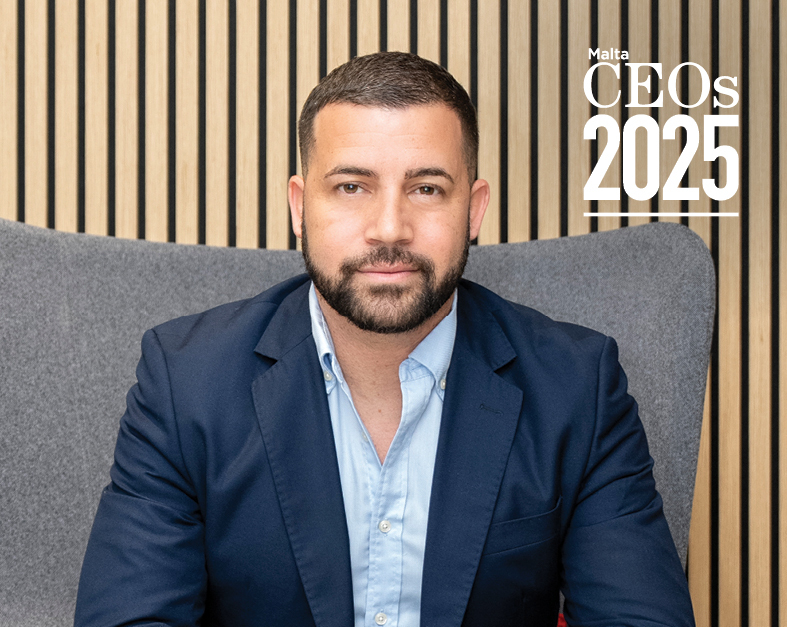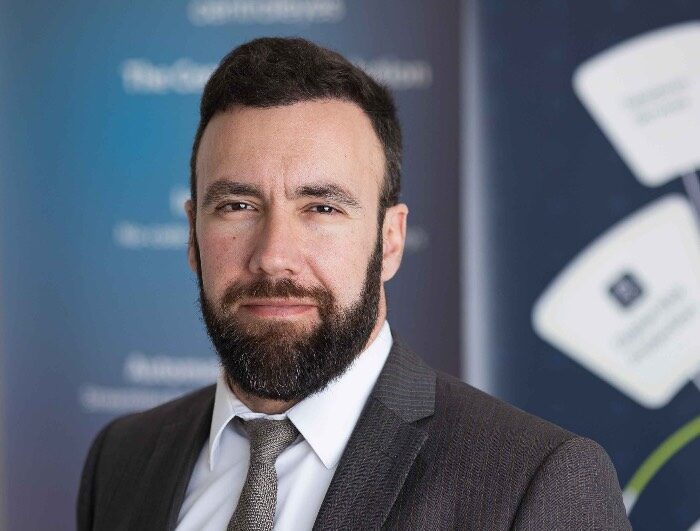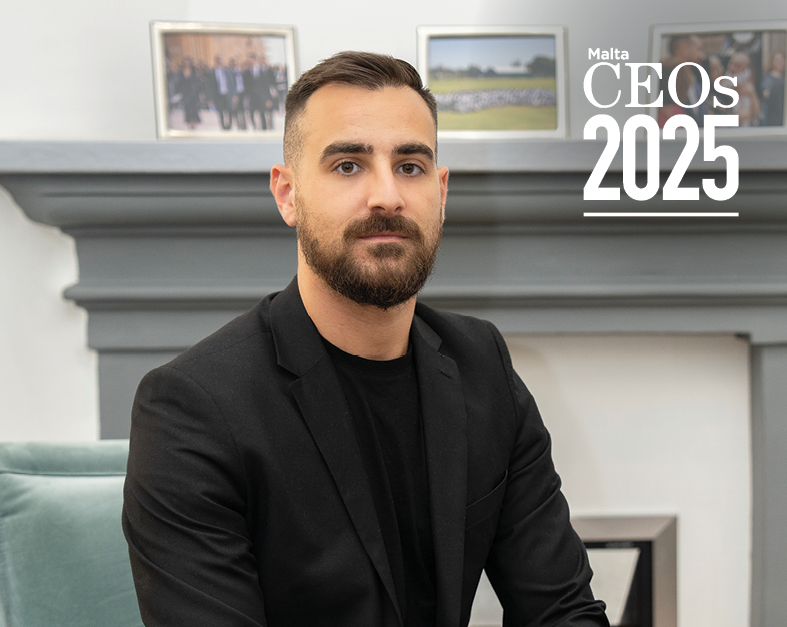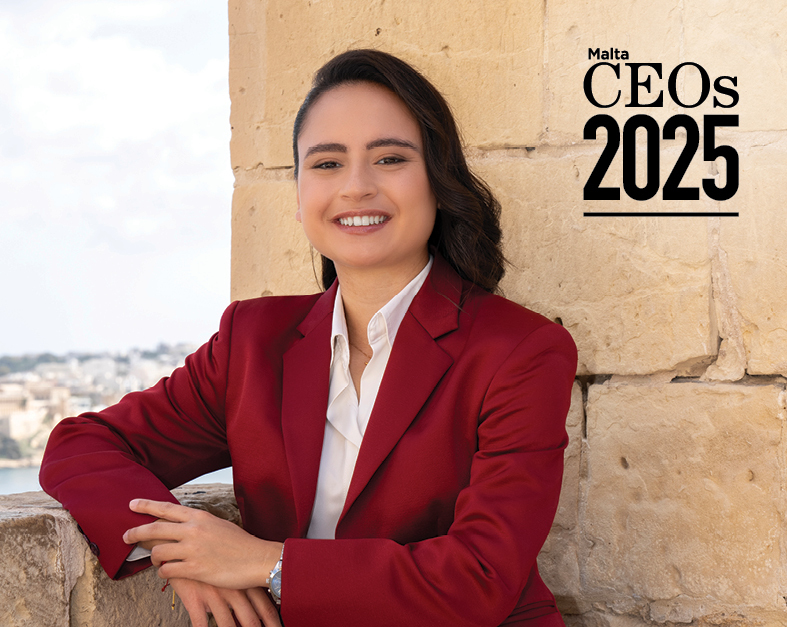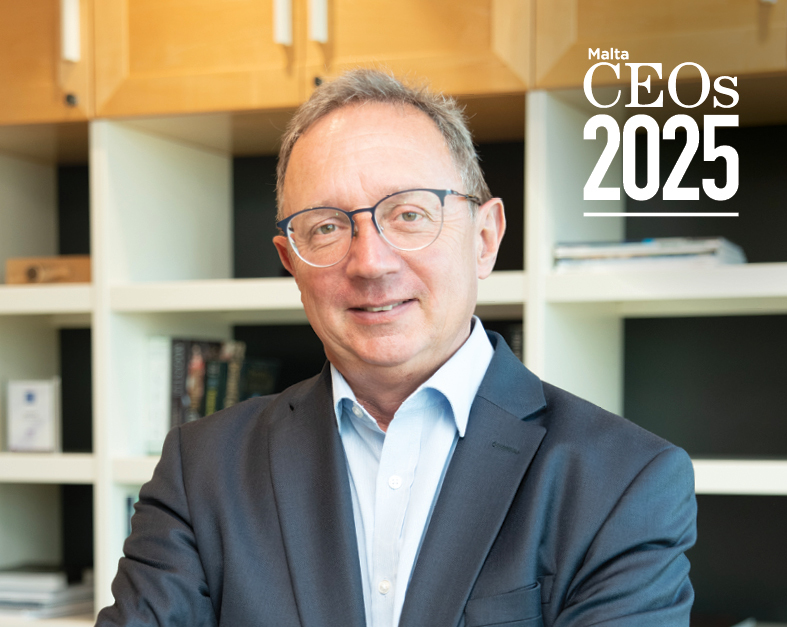Elton Dimech, Managing Director of Payhound, is guiding his team through the complex terrain of cryptocurrency and digital finance. Leading one of the first licensed crypto service providers on the island, Elton combines his banking background with an adaptive approach to new technologies. Focused on regulatory compliance and secure payment solutions, he is positioning Payhound to navigate the evolving European market in 2025 and beyond.
Having launched his career in banking in 2009, Elton Dimech spent a brief spell at Bank of Valletta plc and a longer tenure at Sparkasse Bank Malta plc, steadily rising through the ranks over the course of a decade.
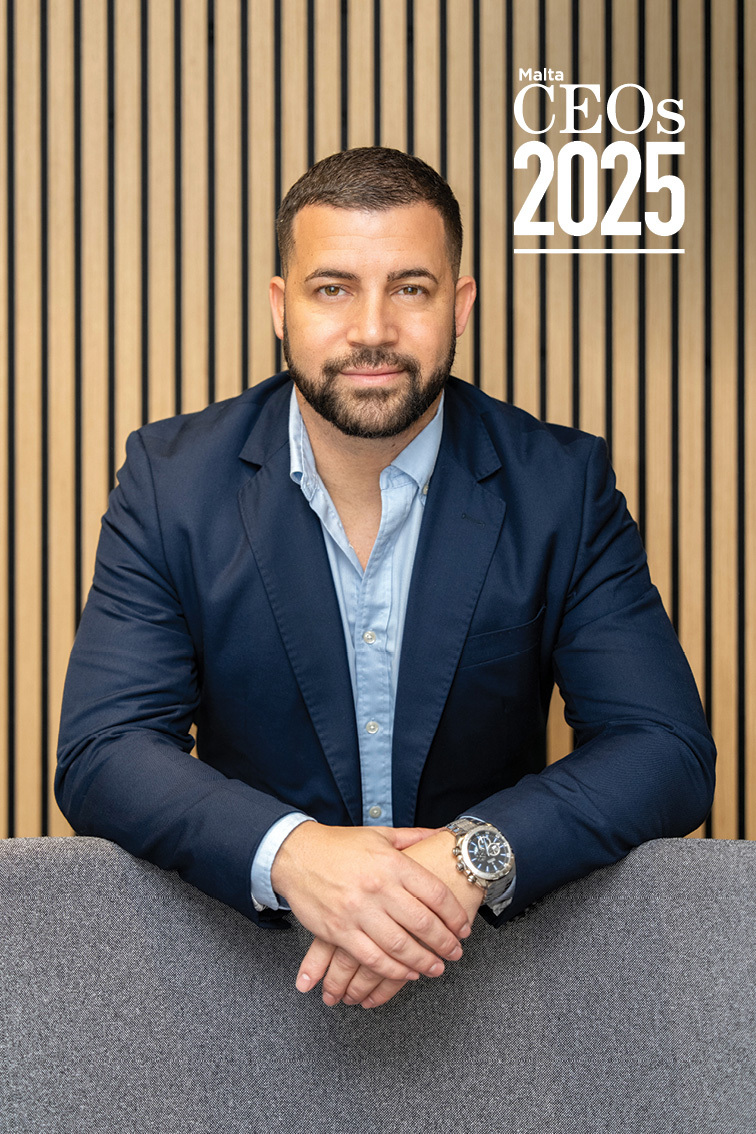
Becoming Head of Corporate Banking at Sparkasse – then a newly introduced and immediately successful service – marked an important milestone for Elton. Gaining exposure to the industry, he transitioned to cryptocurrency and joined Payhound (formerly Moneybite) in 2019. “Moving from a very specific role within a large company to a broader one within a small team opened the door to areas that were new to me, which was very interesting,” he recalls.
Reflecting on his current role as Managing Director, Elton shares, “as someone with a certain level of responsibility, I see myself as the glue connecting our capable team to the company’s vision.” To Elton, leadership boils down to leading by example. “I like to be the first one at the office and the last to leave, and I am always available for my team. Having started at the bottom, I know how hard it is to earn opportunities,” he says.
Opportunity has been key in Payhound’s young history. Founded in 2018, the company set out to provide seamless deposit solutions for gaming operators and to facilitate fast international transfers, addressing limitations in traditional banking. “Reliable crypto-based payment solutions have allowed gaming companies – which were still viewed as high-risk businesses at the time – to operate smoothly in line with their business goals,” Elton explains.
As one of the first companies to be licensed under the Virtual Financial Assets Act by the MFSA in 2021 – and therefore one of the first regulated entities in the space – Payhound quickly established itself in the market as a secure and compliant solution. Since then, the company has expanded beyond gaming.
“We soon recognised the importance of diversifying our client base rather than relying on one vertical, so we took what we know best – crypto payment processing and converting funds between crypto and fiat currencies – and replicated that solution across other industries facing similar challenges,” Elton shares, demonstrating the company’s adaptability as it extended its services to affiliates, financial institutions and e-commerce businesses. “Our model has been to identify needs as an opportunity to offer our product and to see where else these pain points exist so we can develop our solutions across other verticals,” he explains.
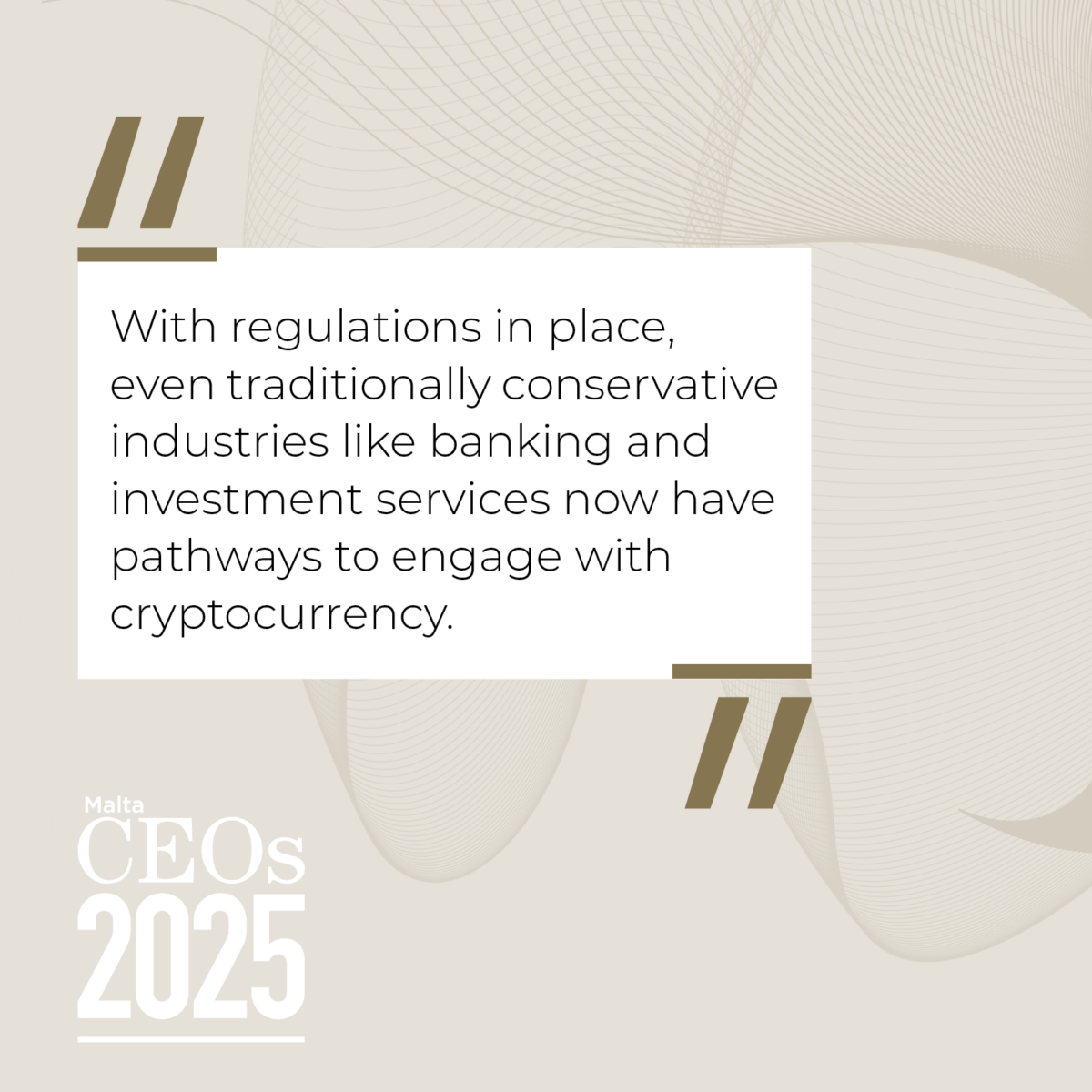
Central to Payhound’s operations is its emphasis on security. From the outset, the company has prioritised a robust approach to protecting client funds and data, securing ISO 27001 certification in its commitment to maintaining international standards of information security management. “We continuously assess security, which is top of mind whatever we are working on – from intellectual property and our proprietary technology to product development and integrated add-ons to our solutions,” Elton asserts.
Discussing industry regulation, Elton highlights the EU’s introduction of the Markets in Crypto-Assets (MiCA) regulation, which took effect on 30th December 2024. “With MiCA, crypto-asset service providers in Europe are now governed by an EU-wide framework rather than individual local regulations. This was prompted by the EU’s realisation that crypto is now too big to fail and to be left unregulated. It’s no longer a passing trend but a valuable asset class that, like others, requires consumer protection,” he states.
This legislation represents a turning point for companies like Payhound, as it aligns all EU members with a unified regulatory standard, reducing inconsistencies across borders. For Payhound, Malta’s regulatory alignment with EU standards has facilitated a relatively smooth transition. “Very little has changed when compared to how we were previously regulated by the MFSA. As one of the first jurisdictions to regulate the space, the local market has been stable for a number of years,” he reports.
For companies like Payhound, MiCA has introduced fresh opportunities. “While not everyone may agree, I see regulation as an opportunity. In this case, it’s creating a more stable regional market. However, the new framework has sent shockwaves through the industry, and some companies might not survive,” he remarks, highlighting the regulatory arbitrage prevalent in the sector prior to the new framework. “Some jurisdictions, like Malta, led the way with high regulatory standards, while others chose not to regulate at all. This lack of consistency allowed companies to operate without the oversight of a financial authority if they chose more lenient jurisdictions. The EU now requires all crypto service providers to be fully regulated,” Elton explains.
As a result, those in minimally regulated environments are rethinking partnerships and becoming more selective about compliant crypto providers. “This shift is expected to spur consolidation in the market as less regulated providers exit, creating demand for compliant solutions. This will benefit providers like us in Malta, where stringent regulations were already in place,” he observes.
This does not mean that Payhound intends to rest on its laurels, however. “Of course, we are still a relatively new company and we plan to continue growing strategically while adapting to new opportunities,” Elton confides. He also believes that the new regulatory landscape will drive increased interest from major players who had previously steered clear of crypto due to perceived risks. “We anticipate a lot of renewed interest from sectors like banking, which historically have distanced themselves from crypto, as well as from investment services like funds and asset managers,” he predicts. “With regulations in place, even these traditionally conservative industries now have pathways to engage with cryptocurrency. For instance, funds can now invest in crypto assets, with a major shift in the acceptance of Bitcoin ETFs in the US, enabling institutional and retail capital to flow into crypto. This is a significant breakthrough, making the space more appealing and accessible to a wider range of investors,” Elton notes.
The new framework has also levelled the playing field within the EU, presenting Payhound with higher-level challenges. “Now, there’s more equivalency in the market among service providers throughout Europe. This harmonisation promotes fair competition, which is core to the EU’s ethos, but it also means that we need to stay competitive by maintaining the highest standards in product quality, service and security to remain a top choice for our target clients. The landscape is now one of equivalent competition across Europe, which challenges us to stand out by excelling on every front,” he asserts.
Elton observes that while Malta’s size presents certain limitations, it still remains a target market for businesses. “This mitigates the effects of global turbulences that larger markets face,” he says, acknowledging that major geopolitical events, like decisions made by larger powers such as the US, inevitably affect the local economy. “Wars, for example, have both direct and indirect effects on the market in general,” he adds.
Despite the heightened competition and evolving expectations, Elton is optimistic about Payhound’s next phase. “As a young business, our focus is on growth with stability. Moreover, the licence we hold now does not limit us in how we operate across Europe. In fact, it gives us the ability to freely passport our services into any EU member state, and we have the same opportunities as any other company in Europe to attract business across borders,” he remarks. This expansion strategy positions Payhound to rise as one of the leading players in the crypto space within Europe.
With enthusiasm for the year ahead, Elton concludes: “In 2024, we focused on stabilising our team and adding expertise for the next phase. The regulatory changes we faced helped us streamline our processes and focus on what truly matters: Continuing to deliver top-tier, compliant solutions for our clients. Our goal in 2025 is to be at the forefront of crypto payment processing, offering businesses the ability to receive and convert crypto seamlessly, with a solution that feels like a traditional bank account.”
This article is part of the serialisation of 50 interviews featured in Malta CEOs 2025 – the sister brand to MaltaCEOs.mt and an annual high-end publication bringing together some of the country’s most influential business leaders
CEO overseeing Housing Authority’s transformation appointed to EU Housing Advisory Board
Matthew Zerafa is reforming the Authority’s approach to housing solutions, addressing changing demographics while maintaining its core social mission.
‘It’s unwavering persistence that drives breakthrough achievements’ – Manila Di Giovanni, DWorld CEO
'Our virtual economy hub will showcase Malta’s heritage, local enterprises, startups, and public institutions on the global stage.'
‘If you believe in what you’re trying to achieve, you’re already halfway there’ – Jordan Camilleri
The co-founder of Health & Co describes establishing and running a business as a life-long learning process.
‘We want to push the boundaries. We want to lead’ – AX Group CEO and Deputy Chairman Michael Warrington
His experiences working across various industries, have provided Michael Warrington with valuable insights into how AX Group's businesses are affected.


